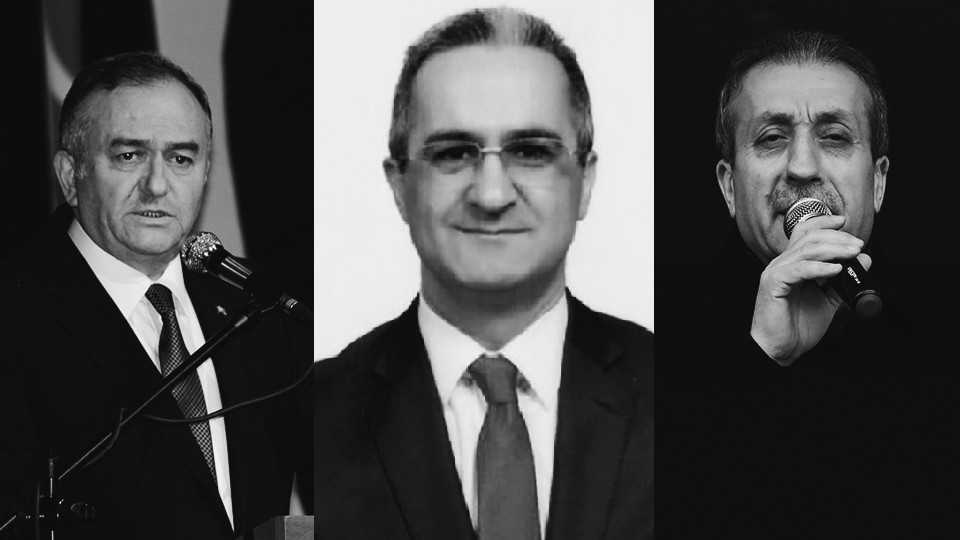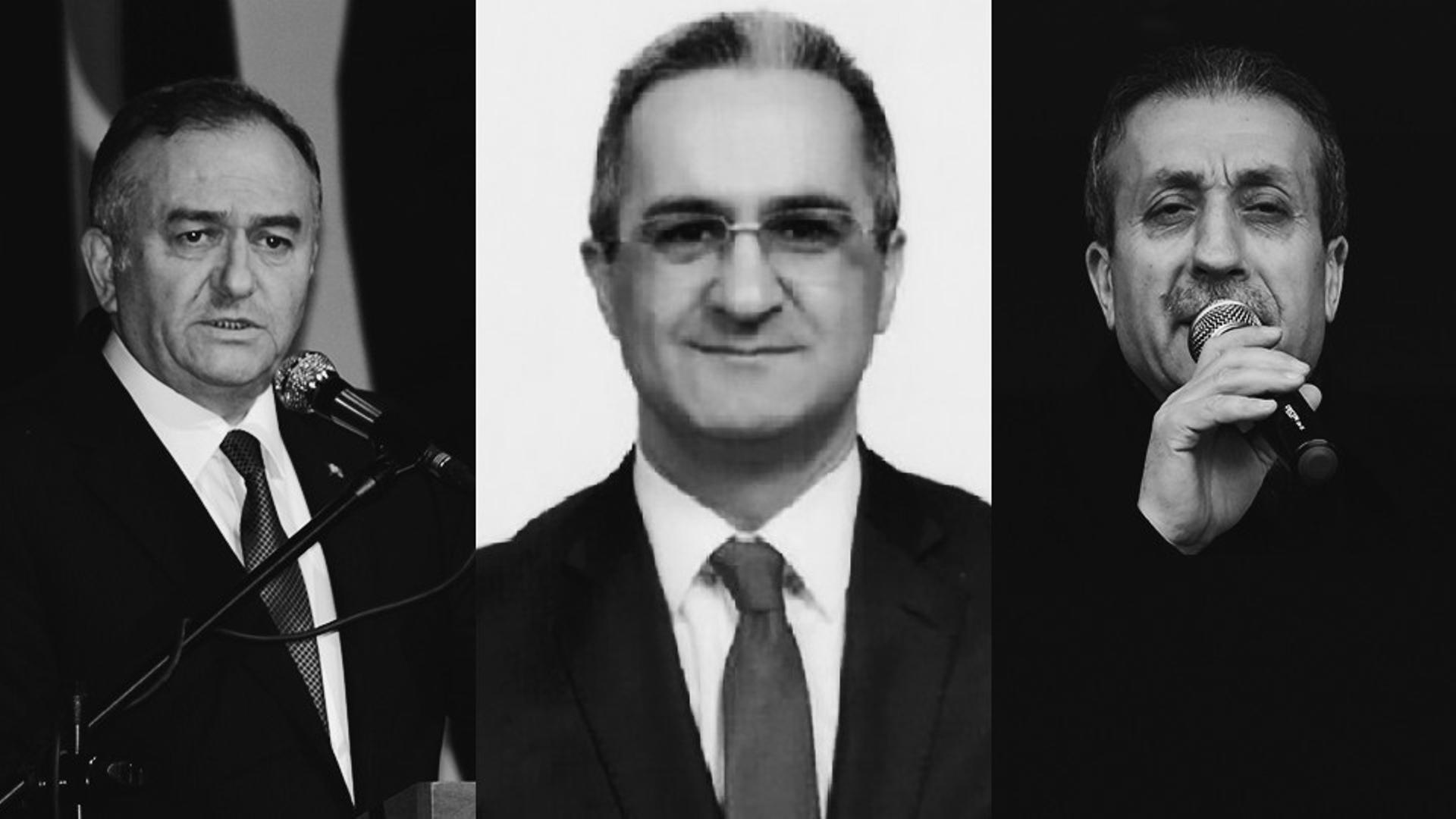
Turkey’s April 16 referendum on amendments that might change Turkey’s constitution and semi-parliamentary system has divided the country into two camps.
TRT World asked three MPs from three major parties about their views on the proposed changes.
1) Turkey’s governmental system was created in 1982 under military supervision, after a junta took control in 1980. Does the current system work?
Erkan Akcay, Group Vice President and Member of Parliament from Manisa for Nationalist Movement Party (MHP):
“No, the current system is definitely not working. Military interventions under the current constitution prove that there should be a clearer separation of powers at the legislative, executive and judiciary level. This way, a system with checks and balances will be stronger—and political stability will ensue. And it definitely doesn’t mean “one man rule.”
Ali Akyildiz, a Member of Parliament from the Sivas for People’s Republican Party (CHP), Turkey’s main opposition party:
“Turkey’s government system was working well until 2014, when Recep Tayyip Erdoğan was elected President. His presidency brought the system to a deadlock. Now, it’s not functioning.”
Mehdi Eker, Vice President and Member of Parliament from Diyarbakir for Justice and Development Party (AK Party):
“It’s not functioning because it isn’t a proper parliamentary system. In a proper parliamentary system, a president shouldn’t have widespread powers but our constitution, which designed our system, was made under supervision of coup leaders in 1982 after a junta gave these powers to the president.
Now we have a president who is legally authorised to act, but who has no criminal liability for his actions—and a prime minister who is authorised and has criminal liability. And this is causing a conflict of powers.
2) The discussion around replacing the Turkish constitution with a new one isn’t new. Over the years, the Turkish parliament discussed the 1982 constitution through constitutional reconciliation commissions. But the latest and most comprehensive attempt to create a new constitution failed in early 2016, even though 4 major parties had agreed on 60 revisions. Do we still need to change the constitution?
Akcay: “The [current Turkish parliament] is just a parliament that is following orders of the executive. The constitution will make it a stronger democracy, and a stronger parliament. Both the parliament and the executive will be more responsible for their actions. What a republic means is a stronger democracy, with the people’s will—and the new system will be able to execute it better as the President will be chosen directly by people.”
Akyildiz: “We need a constitution that would speak to everyone in society, so that they would all think that ‘it’s my constitution’. We need to change the constitution altogether—we agree on that. But the proposed one is worse than the ‘coup constitution’ which was written in 1982. That’s why I don’t think this proposal will fix problems.”
Eker: “We need to change this because with the proposed system the president will have criminal liability that matches his authority. The parliament will be doing its real duty, making laws and serving as a check on the government and the president. So their (the parliament and the president) powers will be separated.”
3) How do you feel about the timing of the vote and the way the referendum has been conducted?
Akcay: “We are proposing these changes because Turkey needs it urgently. Even before these changes were officially proposed, a ‘No’ campaign was led by CHP. From that day to today, they made claims about the proposed changes which are not true. As we made our official proposal their claims have decayed because now everyone knows what we are proposing. What a republic means is that there is a strong democracy with people’s will and the new system will be able to execute it better as the president will be chosen directly by people and he will be more accountable to them at the same time.”
Akyildiz: “The process was wrong from the start. I don’t know what kind of logic, what kind of state of mind decided to bring the referendum. We have economic problems in our country and we also have problems in the Middle Eastern region to deal with. We actually need to solve problems, instead focusing on bringing up this referendum. What we need to do is to control what is not going right about our country using common sense —and then we need to move forward all together. Then I think we needed to make early elections to ask people their opinion one more time.”
Eker: “The AK Party wanted to replace the constitution with a civil constitution, but wasn’t able to do it. That’s why we only decided to propose these amendments that will create a better version of the 1982 constitution.”
4) How will the results affect Turkey?
Akcay: “The biggest problem in Turkey always has been instability. The average time in power of a government is not even 1.5 years. If it’s a yes vote, the government, which is directly chosen by the government, will be functioning for 5 years. And if people are not happy they will change the president at the end of the term. With constitutional reforms, the president will be legally liable for every step taken. It is a major change.
“There are lies aimed at creating confusion about powers of the president. People claim that the president will be creating the budget alone. That’s not even possible. The government is still bound by the parliament, and only if the parliament approves ıt, will the budget be accepted.
“And secondly they claim that the judiciary will be controlled by the president. With the changes to the judiciary, the High Council of Judges and Prosecutors (HSYK) won’t be assigning its own members anymore. As we’ve seen during 15th of July coup attempt, judges and prosecutors started to take political, sectarian, ideological positions during the elections. It ruined the judiciary. There will be 13 HSYK members and the parliament now will be able to choose seven of the members. The president will choose only four members, as is the case in the current system. Every president will be working with the HSYK members who were chosen during term of a previous president.
“Who are we going to trust if we won’t trust the ones chosen in democratic elections? We believe in democracy and trust people’s choices.”
Akyildiz: “If the outcome of the referendum is ‘Yes’, the country will head in a bad direction. Because now we have a constitution that we don’t see anywhere else in the world. There won’t be an independent judiciary, because the president will assign 13 members of the judiciary—and also executive decisions will be taken by one person. The president will be able to dissolve the parliament and hold new the elections any time. The duty of making the budget is now will be on the president now and parliament only will be there to rubber stamp decisions. I don’t think Turkey will approve this proposal.”
Eker: “The ‘Yes’ vote will have a very positive impact on Turkey. It will solve three major problems in Turkey is facing. It will remove divisions between the executive and the administration — creating a stronger parliament is our model. The danger of instability is also going to be removed in this way. Turkey will also be able fight better with a functioning bureaucracy. Turkey’s economy is middling. We need a leap to be able to go forward. Only a change in our system can do this.”










Discussion about this post